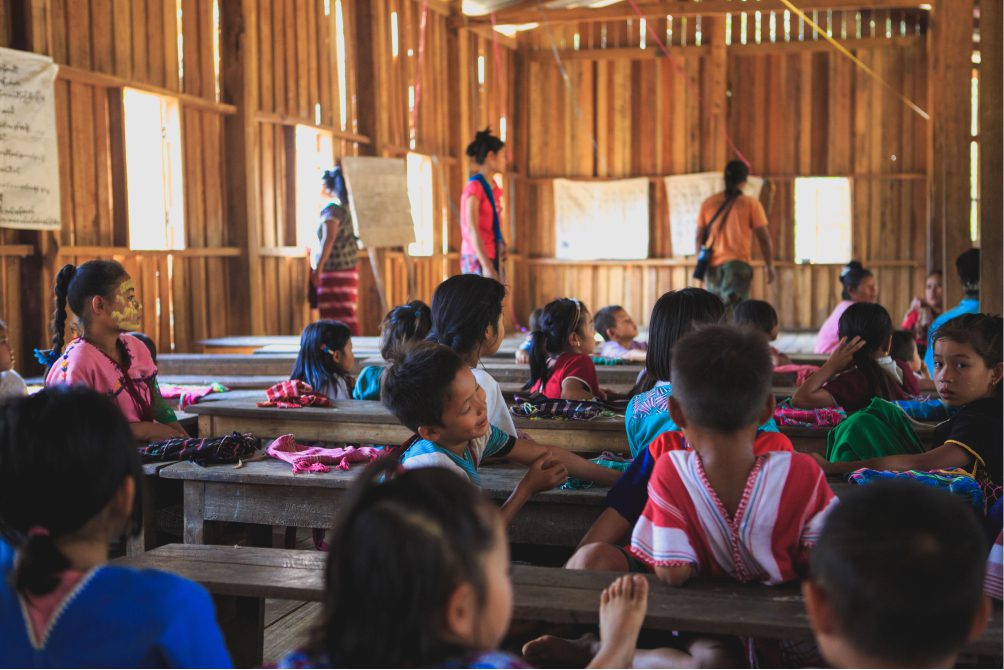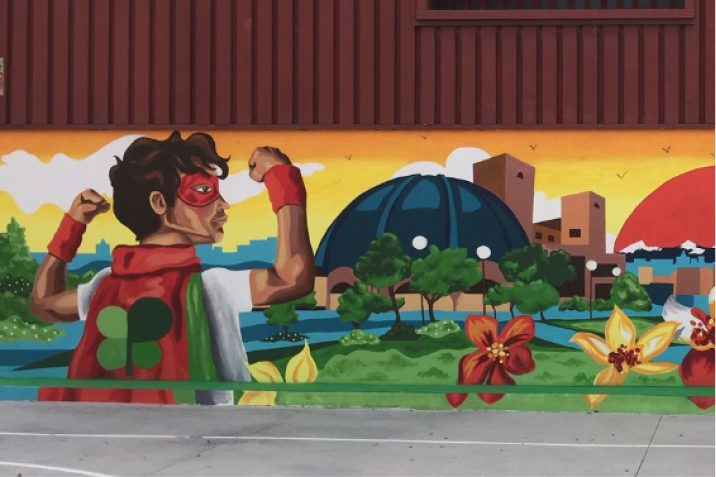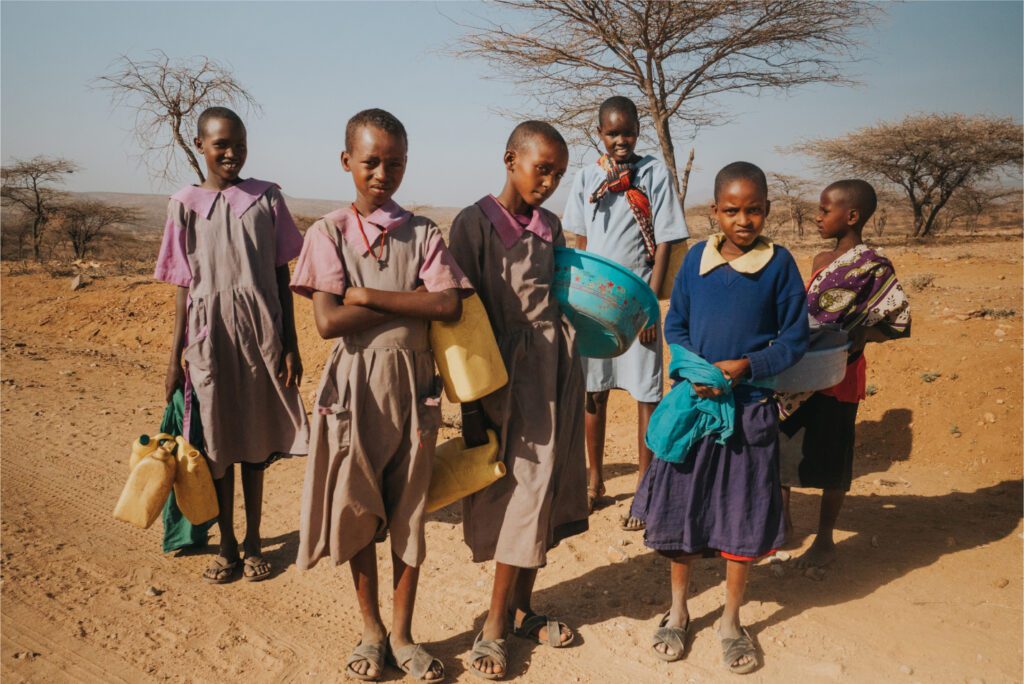The Challenge of Children Education
- Home
- La fundacón
INTRODUCTION
"617 million young adults in the world lack basic arithmetic skills and have a minimum level of literacy."


OUR STORY
Océano Solidario was founded by Ocean Infrastructures Management (now under Ocean Capital Partners group) in 2016 with the aim to help children and youth in poverty or at risk of social exclusion have the opportunity for a quality education.
PROJECTS
Myanmar's Secondary School


Despite the reforms and increased investment in public education (from 0.8% to 2% of GDP from 2011-2018), many children and young people still do not have access to education. This is due to the low level of school infrastructure and teacher qualifications that constitute the country’s educational system.
Everything started with a trip to Myanmar in 2016, when Ko Ye, a local guide told us about the problems the children of Ngakhommasan, a small town of Twante in the Province of Ragun, faced regarding their access to education. The town only had one primary school, which was composed of approximately 140 enrolled students. The school was organized in only six classes, composed of children ranging from 3 to 9 years old. Through Ko Ye we learned that the school would be able to offer high school classes if an additional building was constructed. Therefore, we made the decision to lead this initiative in order to contribute to the education and well being of the children from Ngakhommasan.
In July 2017 and thanks to the support of our volunteers, we started the construction project. Through a collaborative and participative construction approach, we were able to work closely with the different families from Ngakhommasan, who actively contributed to the project as well. In order to maximize the available resources, we used local materials and human capital, coordinating a supervising the project from Madrid.
Our team was incredibly involved from the beginning of this project, working on the design and construction of the building. Furthermore, we decided to include, as part of the project, the adequation of the rest of the available terrain to build a children’s park. At the end of 2019 we contributed to the creation of a school library: donating the necessary furniture in order to make the place amicable for the children.
From the Fundación Oceáno Solidario we always work to maximize the reach of all of our actions. Far beyond promoting the educational development of children and young adults, we always look for ways in which we can sustainably contribute to the growth of the local economy.
Ademo Foundation


According to data from the State Disability Observatory (OED), during the 2017-2018 academic year there were 219, 720 students with special education needs, and 16.6% of them were enrolled in the Special Education modality. One of these centers is the ADEMO Foundation Special Education College. The ADEMO Foundation, based in Madrid, is dedicated to supporting and giving opportunities to people with intellectual disabilities and promoting their full inclusion into society. The Foundation currently manages an Early Childhood Care center (serving children from birth to 3 years old), a Special Education Center (offering adapted teaching to students ages four to 21), two Occupational Centers (where adults with disabilities carry out paid work), a Shelter (where adults with disabilities live independently in small groups, supervised by professionals from the Foundation), and a Service Group (which provides entertainment for users of all ages).
Currently, the Special Education Center serves 75 students with mental disabilities and serious developmental disorders. The school facilities receive basic support form the Administration and donations from various entities and companies. Among other items, the Special Education Center receives equipment for the proper care of students.
Aware of this situation, in February 2017 the collaboration between the two Foundations began by supplying special school furniture adapted to student needs for the dining room. This made a significant difference in the day to day life of their children because, due to the particular characteristics of their physical and psychic disorders, they needed specially manufactured adapted material.
To continue our contribution, Oceano Solidario has provided the School with a special relaxation room to treat students with TGC (Serious Conduct Disorder) during the crises that they occasionally have which disrupt the normal dynamics of teaching activities. This room was inaugurated in January 2021.
We hope to continue collaborating to support the present and future of this group of children.
Senegal


After learning about Yakaar Africa, an association dedicated to different fields such as health and hygiene, orchards and farms, education and culture, and local industries, Océano Solidario began its collaboration in Senegal.
At Océano Solidario we hope that in the near future we will be able to provide university scholarships to young, motivated students in developing countries yearning to further their education.
The possibility of collaborating in Senegal comes after meeting Yakaar Africa, an association that has been working in the country since 2006 in different fields: health and hygiene, orchards and farms, educationand culture and local industries.
At Oceano Solidario we hope that in the near future, we will be able to provide college scholarships to young people from developing countries who have great interest in learning but few resources.